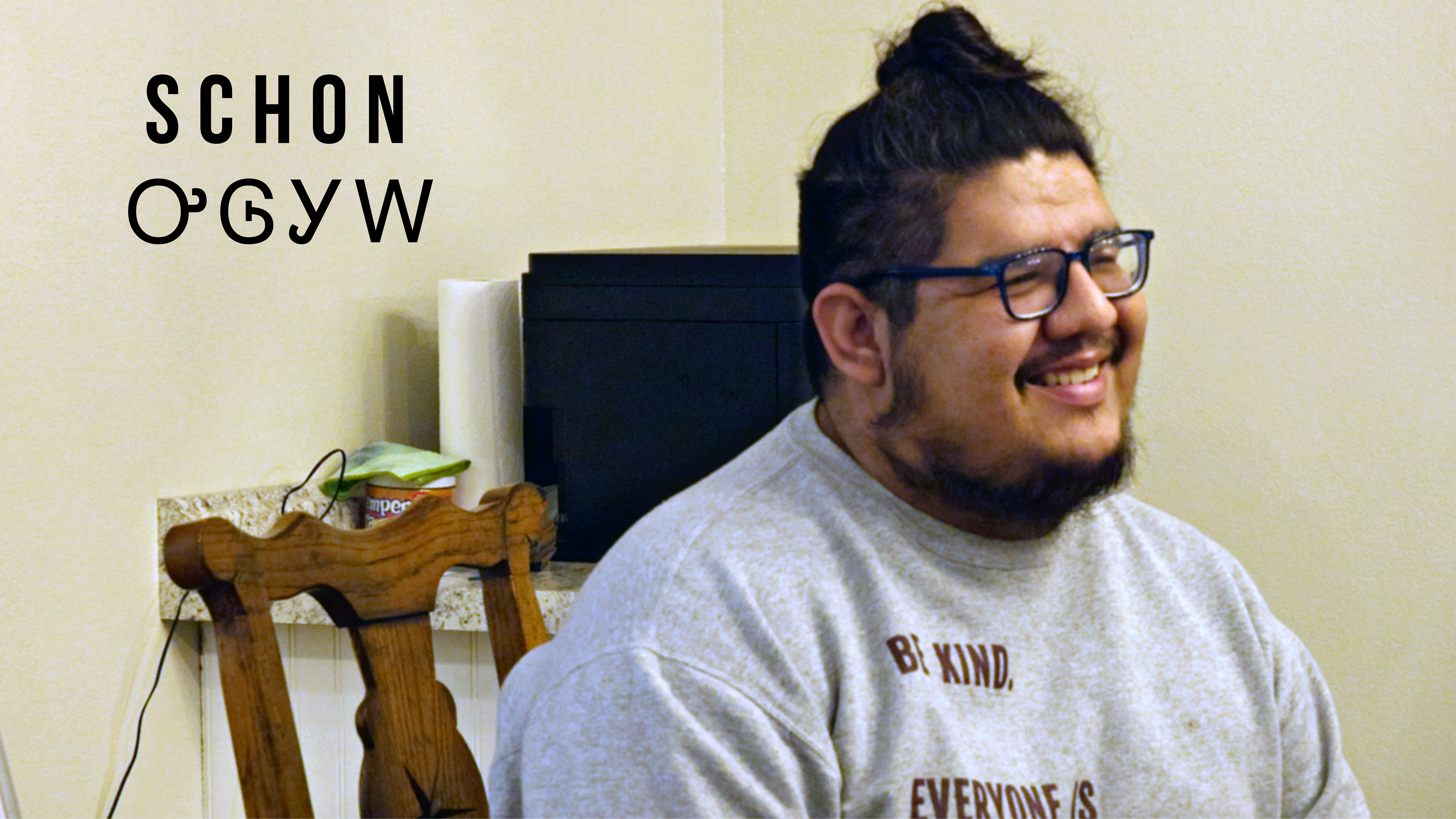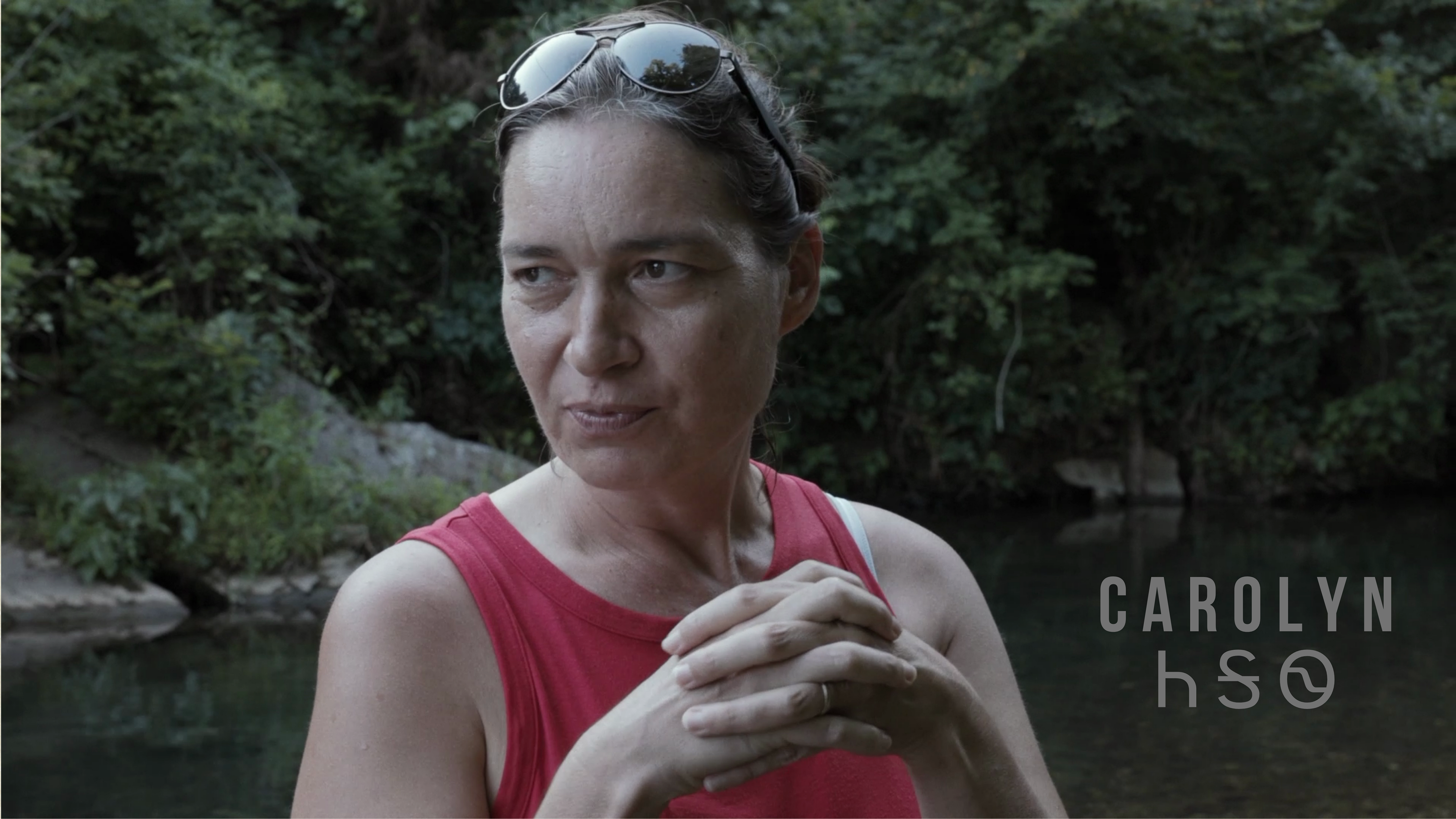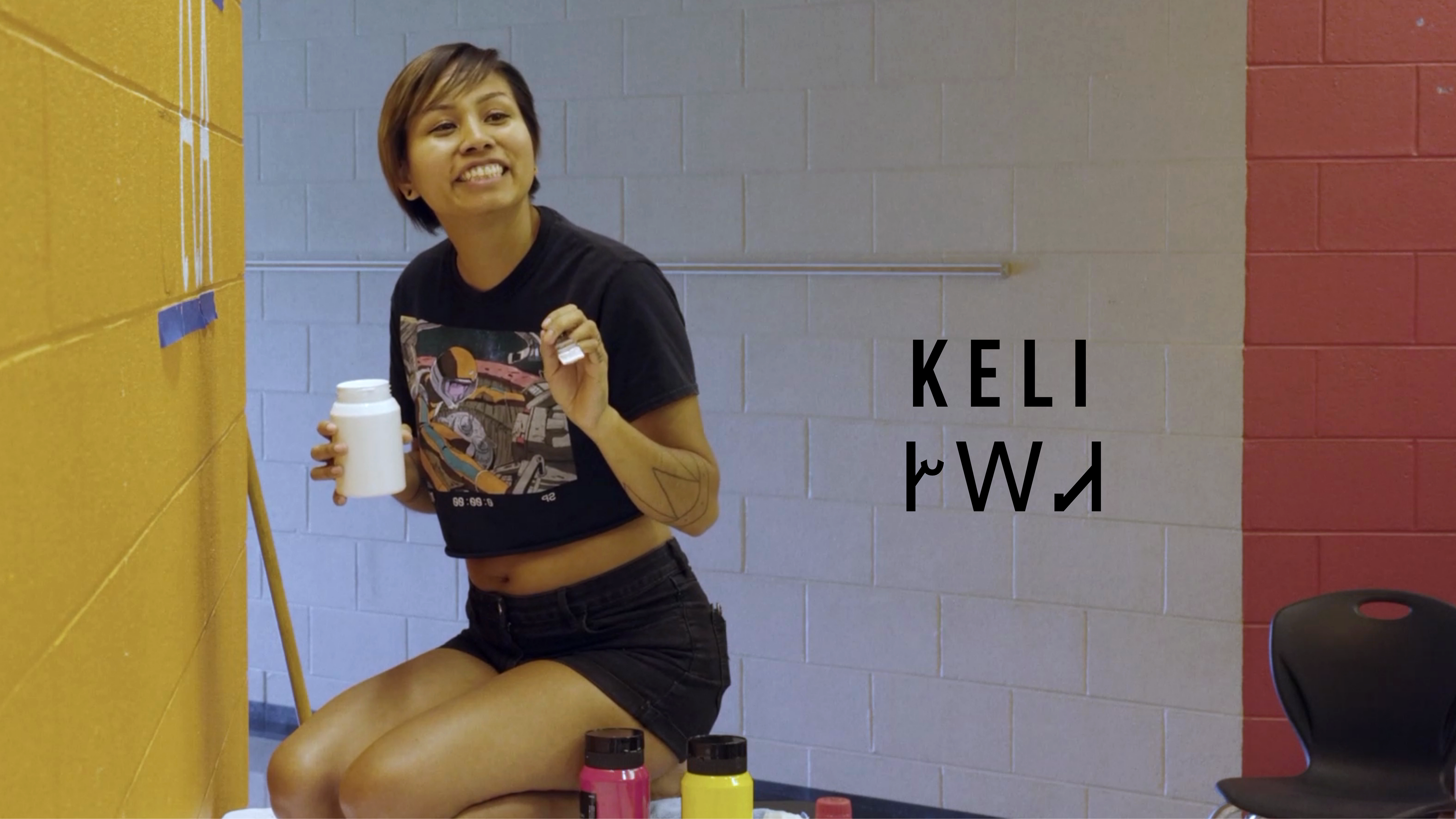ᏓᏗᏬᏂᏏ (Dadiwonisi / We Will Speak)
A feature-length documentary collaboration chronicling the efforts of Cherokee activists, artists, & educators fighting to save the Cherokee language.
A feature-length documentary collaboration chronicling the efforts of Cherokee activists, artists, & educators fighting to save the Cherokee language.
Consider helping fund the film's impact campaign:
Purchase Educational/Institutional DVD and Digital Site License:
Stream the film for free with your public library or school login:
For updates, follow us on social media:
Upcoming Screenings:
• A Q&A with the filmmakers follows all events listed •
• All events are free and open to the public unless otherwise noted •
• A Q&A with the filmmakers follows all events listed •
• All events are free and open to the public unless otherwise noted •
No events scheduled
ᏓᏗᏬᏂᏏ (Dadiwonisi / We Will Speak)
2023, 95 minutes
Directors:
ᎤᎶᎩᎳ / Schon Duncan & Michael McDermit
Producers:
ᎨᎳᏗ / Keli Gonzales & Laura Heberton
Cinematographer & Editor:
Jacob Koestler
Executive Producers:
ᏪᏌ ᏍᏚᏗ / Wes Studi, Thomas Sadoski,
Katherine Harper, The McClellan-Sorell Family,
Gill Holland, Ben Speiser, & Mark Shlomchik
2023, 95 minutes
Directors:
ᎤᎶᎩᎳ / Schon Duncan & Michael McDermit
Producers:
ᎨᎳᏗ / Keli Gonzales & Laura Heberton
Cinematographer & Editor:
Jacob Koestler
Executive Producers:
ᏪᏌ ᏍᏚᏗ / Wes Studi, Thomas Sadoski,
Katherine Harper, The McClellan-Sorell Family,
Gill Holland, Ben Speiser, & Mark Shlomchik
The Cherokee language is deeply tied to Cherokee identity; yet generations of assimilation efforts by the U.S. government and anti-Indigenous stigmas have forced the Tri-Council of Cherokee tribes to declare a State of Emergency for the language in 2019. While there are 430,000 Cherokee citizens in the three federally recognized tribes, fewer than an estimated 2,000 fluent speakers remain—the majority of whom are elderly. The COVID-19 pandemic has unfortunately hastened the course. Language activists, artists, and the youth must now lead the charge of urgent radical revitalization efforts to help save the language from the brink of extinction.
This feature-length documentary was shot on-location in Oklahoma and North Carolina throughout 2019-2022; through intimate interviews, vérité footage of community gatherings, and extensive archival materials, the film explores the nuanced ways the Cherokee language is vital to maintaining a unique cultural identity and relationship with the world. The collaborative project is also meant to act as an empowering agent of hope for Indigenous voices despite enduring inequity and oppression.
Our film follows various Cherokee community members—specifically language activist and co-director Schon Duncan, educator Carolyn Swepston, and artist Keli Gonzales—as they continue the long fight to help save the language. The film’s “big concepts” of language revitalization are carried through the three characters' stories and narrative trajectories.
Note: There are three federally recognized Tribes of Cherokee (Cherokee Nation, United Keetoowah Band, and the Eastern Band of Cherokee Indians); our film features participants and representatives from all of them. In any press or write ups, we ask that “Cherokee Nation” be avoided as a blanket term to identify the Tribal affiliation for all the participants in this film. This is a story of Cherokee people from all Cherokee Tribes. ᏩᏙ / Thank you!



Co-Director's Statement
This documentary project represents a culmination of the last decade of my life, in which I have returned to our language and am now working to revitalize it. This film documents intimate parts of Cherokee culture that many people (even many Cherokee tribal citizens) don't have access to. Among other things, it explores secluded communities in rural Oklahoma where the Cherokee language is still being spoken and taught by first-language speakers. As a citizen of the United Keetoowah Band of Cherokee Indians, my positionality and knowledge on the crisis at hand has afforded me a unique opportunity to involve voices in our communities who are often overlooked by other media producers. Many of the subjects in the film are my colleagues, teachers, friends, family, and, most importantly, some of the tribes' remaining first-language speakers. The film crew is also largely composed of other Cherokee/Keetoowah citizens in roles of production, including camera operators, musicians, translators, and animators. The Cherokee history and personal stories told in this film not only stand to bring awareness to the issue of language loss, but also are meant to inspire people to join into the work of ongoing language revitalization. This documentary represents my greatest effort of reaching the widest audience about this work to showcase the warriors and elders who are in the trenches, hoping you join the fight. Your support of this project is most appreciated. ᏩᏙ.
-- ᎤᎶᎩᎳ ᏛᎩ / Schon Duncan
